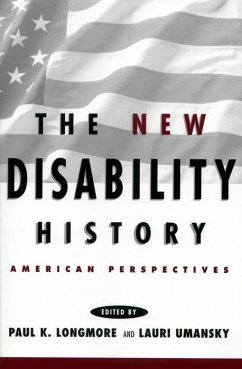Including single-authored titles, primary source collections, and readers, The History of Disability series will address the full range of topics in disability history: policies and laws, political movements and organizations, medical treatment anf views, education, institutions and agencies, philanthropy, labor, eugenics, cultural representations, disability cultures, and more. Books in the series will trace the intersections of disability with gender, race, ethnicity, and class. While some books will focus on particular disability groups, others will attempt to excavate the unspoken, unacknowledged, and often invisible ties that bind people with different disabilities together in a common history. The individual contributions and the series as a whole will bring to light the underlying common themes that bridge the apparent divisions among physical, sensory, and mental disability. Informed by the social constructionist insights and interdisciplinarity of cultural studies but firmly grounded in empirical research, the series will facilitate development of both the theory and methodology of disability history. Disability has always been a preoccupation of American society and culture. From antebellum debates about qualification for citizenship to current controversies over access and "reasonable accommodations", disability has been present, in penumbra if not in print, on virtually every page of American history. Yet historians have only recently begun the deep excavation necessary to retrieve lives shrouded in religious, then medical, and always deep-seated cultural, misunderstanding. This volume opens up disability's hidden history.In these pages, a North Carolina youth findshis identity as a deaf Southerner challenged in Civil War-era New York. Deaf community leaders ardently defend sign language in early 20th century America. The mythic Helen Keller and the long-forgotten American Blind People's Higher Education and General Improvement Associat
Hinweis: Dieser Artikel kann nur an eine deutsche Lieferadresse ausgeliefert werden.
Hinweis: Dieser Artikel kann nur an eine deutsche Lieferadresse ausgeliefert werden.

